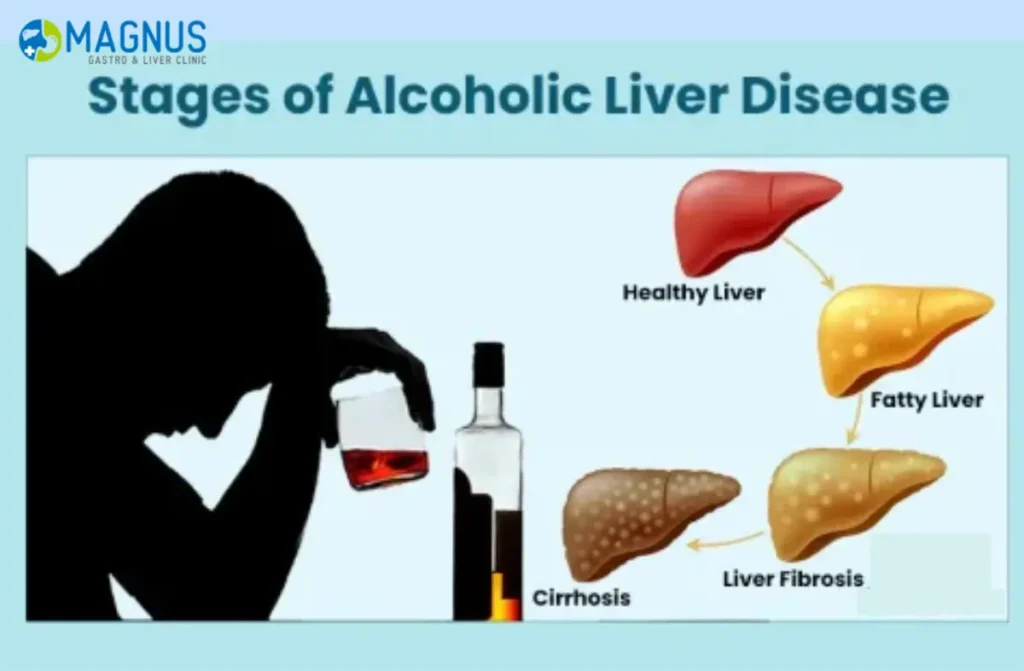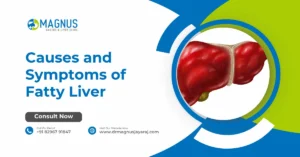How alcohol affects your liver is a topic many people overlook, even though it is central to maintaining overall health. Alcohol is processed in the liver, but excessive drinking can overwhelm this vital organ, leading to serious health problems. So, how can alcohol affect your liver? Over time, drinking too much can cause inflammation, scarring, and eventually liver failure. It’s important to understand the long-term effects of alcohol on your liver and how to prevent irreversible damage.
How alcohol affects your liver can vary from person to person, depending on factors like the amount consumed, frequency, and individual health. Regular drinking, especially in large amounts, increases the risk of developing liver diseases like fatty liver, alcoholic hepatitis, and cirrhosis. This article will dive into the impact of alcohol on your liver and how to protect it from potential harm.
Inflammation of the Liver
Alcoholic hepatitis is an inflammatory condition caused by excessive alcohol consumption. It occurs when alcohol metabolizes in the liver, producing harmful by products that damage liver cells and lead to inflammation. Common symptoms include jaundice (yellowing of the skin and eyes), abdominal pain, and fatigue.
While mild cases of alcoholic hepatitis can improve with complete alcohol abstinence, severe cases may progress to life-threatening liver failure if left untreated. Early intervention, including medical treatment and lifestyle changes, is crucial for recovery.
How Alcohol Affects Your Liver: A Detailed Guide
Alcohol consumption can significantly impact your liver health over time, leading to various liver conditions, including alcoholic hepatitis and cirrhosis. Understanding how alcohol affects liver function is crucial for maintaining good liver health and preventing long-term damage, including liver cirrhosis.
Acute Alcoholic Hepatitis
Acute alcoholic hepatitis is a serious condition that results from heavy drinking over a short period. This inflammation of the liver occurs when alcohol causes direct toxicity to liver cells, leading to swelling and damage.
- Symptoms: Fatigue, jaundice (yellowing of the skin), nausea, abdominal pain, and fever.
- Treatment: In severe cases, hospitalization and medications like steroids may be required to reduce inflammation. If not treated promptly, acute alcoholic hepatitis can progress to more severe fatty liver damage.
Effect of Alcohol on Your Liver
The liver plays a vital role in metabolizing alcohol and detoxifying harmful substances. When alcohol intake exceeds the liver’s capacity, its functions are compromised, leading to a range of issues:
- Fatty Liver Disease: Excess alcohol consumption causes fat to accumulate in liver cells, leading to non-alcoholic fatty liver disease (NAFLD) or alcoholic fatty liver.
- Alcoholic Hepatitis: Prolonged alcohol use inflames the liver, disrupting its ability to filter toxins and regulate metabolism.
- Fibrosis and Cirrhosis: Continued damage from alcohol leads to the formation of scar tissue (fibrosis), which can progress to cirrhosis a severe and irreversible condition impairing liver function.
How Alcohol Affects the Liver
- Alcohol metabolism: The liver breaks down alcohol into acetaldehyde, a toxic substance that can cause damage.
- Fatty liver: Excessive drinking can lead to fat buildup in liver cells.
- Liver inflammation: Chronic alcohol consumption causes inflammation, which can eventually lead to fibrosis or liver cirrhosis.
- Reduced detoxification: The liver becomes less efficient at removing toxins when overwhelmed by alcohol.
How alcohol affects your liver can be severe if consumption is not monitored. How can alcohol affect your liver? If consumed in large amounts, alcohol interferes with liver function and puts stress on the body’s detox process.

Early Signs of Liver Damage from Alcohol
The effects of alcohol on the liver at an initial stage can often have no symptoms. Because of this, you might not even know that you’ve experienced liver damage due to alcohol intake. It can lead to symptoms like
- Swelling of the liver.
- Abdominal pain
- Fatigue.
- Loss of appetite.
- Nausea and vomiting.
- Unexplained weight loss.
Reducing the Risk of Liver Damage
- Limit alcohol intake: Stick to moderate drinking one drink a day for women and two for men.
- Take alcohol-free days: Give your liver time to recover.
- Eat a healthy diet: Nutrient-rich foods support liver function.
- Stay hydrated: Drink plenty of water to help flush toxins.
- Regular check-ups: Visit your doctor for liver function tests.
Knowing how alcohol affects your liver can guide you toward healthier habits. How long does alcohol affect your liver? It can take days or even weeks for the liver to recover from the effects of heavy drinking, but a balanced lifestyle can help prevent long-term damage.
Alcohol-Related Liver Disease
- Fatty liver disease: Alcohol-induced fat buildup in the liver.
- Alcoholic hepatitis: Inflammation of the liver caused by alcohol.
- Cirrhosis: Permanent liver damage due to prolonged alcohol abuse.
- Liver cancer: A possible complication of chronic alcohol-related liver disease.
Understanding how alcohol affects your liver and leading a balanced life can help reduce the risk of alcohol-related liver disease.
Stages of Alcohol-Related Liver Disease (ARLD)
- Stage 1: Fatty liver: Early, reversible stage of ARLD caused by fat buildup.
- Stage 2: Alcoholic hepatitis: Inflammation due to excessive drinking.
- Stage 3: Cirrhosis: Scarring of the liver that may be irreversible.
- Stage 4: Liver failure: Advanced ARLD leading to liver failure.
How alcohol affects your liver in different stages of ARLD shows the progression of liver damage. Regular drinking accelerates this process.
Treatment for Alcohol-Related Liver Damage
Reversing how alcohol affects your liver requires early action and consistent care. Here’s how you can begin healing:
- Stop alcohol consumption immediately it’s the first and most critical step in reversing how alcohol affects your liver.
- Educate yourself: Understanding how does alcohol affect liver function helps you make informed lifestyle decisions.
- Embrace a liver-friendly diet rich in antioxidants to support natural repair processes.
- Regularly monitor liver enzymes it shows how long does alcohol affect your liver and guides treatment.
- Seek medical support to manage withdrawal symptoms and stay on track.
- Learn how much alcohol affects liver recovery to avoid relapse and ensure consistent healing.
- Consult a hepatologist if you suspect damage. They can determine how much alcohol can damage the liver and suggest personalized care.
Recognizing how alcohol affects your liver early gives you the best chance to reverse damage.
Preventing Alcohol-related Liver Disease
- Alcohol’s Effect on Liver Function: The liver breaks down alcohol into acetaldehyde, a toxic compound that injures cells and leads to fat accumulation, inflammation, and fibrosis over time.
- Limit or Avoid Alcohol: Reducing or quitting alcohol intake is the most effective prevention. Long-term even moderate drinking can harm the liver.
- Healthy Diet & Weight: Balanced nutrition and weight control reduce the risk of fatty liver and improve the liver’s ability to heal.
- Stay Hydrated: Water supports toxin removal and eases liver workload. Herbal options like milk thistle may aid function.
- Regular Liver Tests: Liver function tests (LFTs) detect early damage, allowing timely intervention before severe harm occurs.
Complications
- Increased risk of infection: A damaged liver makes it harder to fight infections.
- Bleeding problems: Liver damage affects blood clotting.
- Liver cancer: Chronic alcohol-related liver disease increases the risk of liver cancer.
How much alcohol can damage the liver depends on the frequency and amount of alcohol consumed. Some individuals may be more susceptible than others, based on genetics and drinking patterns.
Excessive Drinking and Fatty Liver Disease
- Impact of Alcohol on Liver Function: Excessive alcohol consumption disrupts normal liver metabolism, leading to fat accumulation within liver cells, a condition known as alcoholic fatty liver disease. Understanding how alcohol affects your liver is crucial because this initial stage is often reversible if alcohol intake is reduced or stopped. Chronic alcohol use can progressively damage liver tissue, impairing its ability to detoxify the blood and produce essential proteins.
- Mechanism Behind Fatty Liver Development: When alcohol is metabolized in the liver, it generates toxic byproducts such as acetaldehyde and reactive oxygen species. These substances interfere with fat breakdown, causing lipids to accumulate inside liver cells. This process illustrates how can alcohol affect your liver by creating oxidative stress and inflammation, which, over time, can lead to more severe liver damage if alcohol intake continues unchecked.
Types of Alcohol-Related Liver Disease
- Alcoholic Fatty Liver (Steatosis): This is the earliest stage of alcohol-induced liver damage, where fat begins to build up in the liver cells. Although it often presents with few symptoms, patients may experience fatigue or mild abdominal discomfort. If detected early, abstaining from alcohol can reverse the condition, demonstrating how critical it is to understand how does alcohol affect liver function in the initial stages.
- Alcoholic Hepatitis: Characterized by inflammation and swelling of the liver, alcoholic hepatitis can develop after prolonged heavy drinking. Symptoms may include jaundice, nausea, fever, and abdominal pain. This stage shows how how much alcohol affects liver because frequent heavy drinking over months or years significantly increases the risk of developing hepatitis.
- Alcoholic Cirrhosis: Cirrhosis represents irreversible scarring of the liver tissue, often resulting from long-term alcohol abuse. Liver function becomes severely compromised, leading to complications such as fluid retention, internal bleeding, and hepatic encephalopathy. Understanding how much alcohol can damage the liver highlights the importance of moderation, as even previously healthy individuals can develop cirrhosis after sustained excessive drinking.
Risk Factors for Alcohol-Related Liver Disease
- Quantity and Duration of Alcohol Consumption: The risk of liver disease increases with both the amount and frequency of alcohol intake. Chronic heavy drinkers are far more likely to develop fatty liver, hepatitis, or cirrhosis, demonstrating how long does alcohol affect your liver over months or years of consistent consumption.
- Genetic Predisposition and Gender: Certain genetic variations affect how individuals metabolize alcohol, making some people more susceptible to liver damage. Women are generally at higher risk than men, as their livers are less efficient at metabolizing alcohol, explaining differences in how alcohol affects your liver between genders.
- Underlying Health Conditions: Pre-existing conditions such as obesity, diabetes, or hepatitis infections can exacerbate alcohol-related liver damage. These comorbidities illustrate how can alcohol affect your liver differently in individuals, accelerating progression from fatty liver to more severe liver diseases.
- Lifestyle and Nutritional Factors: Poor diet, smoking, and lack of physical activity contribute to liver vulnerability. Malnutrition or high-fat diets worsen fat accumulation in the liver, highlighting how does alcohol affect liver function when combined with other unhealthy lifestyle factors.
- Alcohol Type and Drinking Patterns: The type of alcoholic beverage is less critical than the amount and frequency of consumption, though binge drinking significantly increases liver stress. Understanding how much alcohol can damage the liver emphasizes that irregular, high-volume drinking can be as harmful as chronic moderate drinking.
- Recovery and Reversibility: Early-stage alcoholic fatty liver is often reversible with abstinence, highlighting the body’s resilience. However, once cirrhosis sets in, liver damage is irreversible, demonstrating the critical importance of monitoring how much alcohol affects liver function over time and taking timely action.
- Long-Term Consequences: Without intervention, alcohol-related liver disease can progress to liver failure or liver cancer. Recognizing how long does alcohol affect your liver provides insight into why early detection and lifestyle modifications are essential to preserve liver health.
Conclusion
Understanding how alcohol affects your liver is vital for maintaining good health. Regular drinking can lead to liver diseases such as fatty liver, alcoholic hepatitis, and cirrhosis. Recognizing the early signs of liver damage and taking steps to reduce alcohol consumption can protect the liver from irreversible damage. Whether you’re wondering how does alcohol affect liver function or how much alcohol affects liver too much, it’s crucial to make informed decisions about your drinking habits. By doing so, you can safeguard your liver and live a healthier life.
Read also Liver Cirrhosis Treatment in Chennai.




